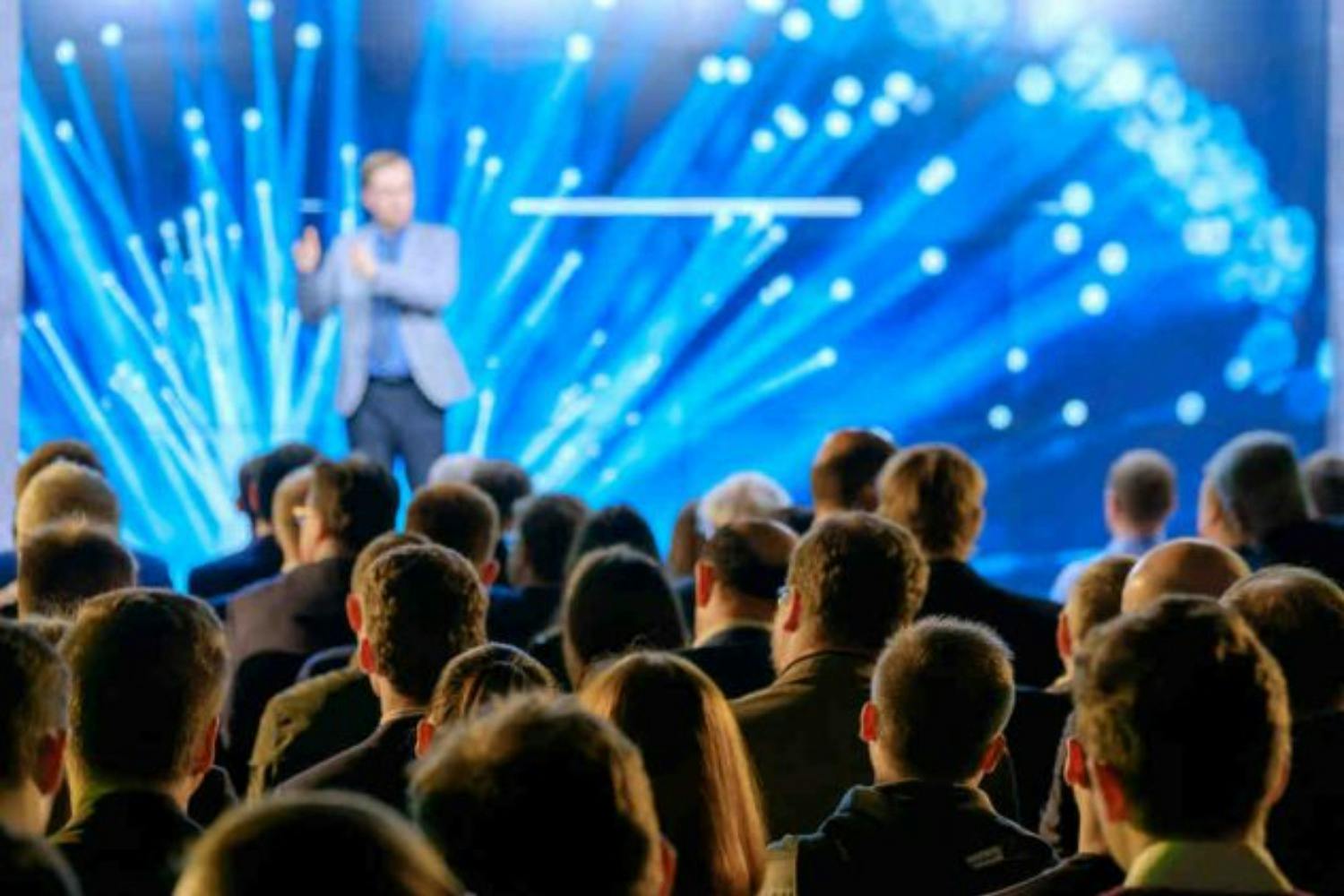
Staying Ahead: Must-Know Corporate Event Trends for This Year
Standing still is equivalent to falling behind in the fast-paced world of corporate events. We are witnessing not just fleeting fads but a more profound evolution in our industry as we navigate through this year.
From embracing the digital revolution to reimagining how we connect and communicate, staying ahead of these trends is crucial for anyone looking to make their mark with memorable, impactful events.
We're taking you on a journey through the corporate event trends you need to know.
Setting the Stage for Innovation in Corporate Events
The corporate event landscape is in a constant state of flux, with new technologies, attendee expectations, and global dynamics reshaping the way we plan, execute, and experience events. This year, innovation is not just a buzzword but a necessity, driving event professionals to explore creative solutions that meet the moment's demands. Whether it's leveraging cutting-edge technology to enhance engagement or rethinking traditional event formats to prioritize health and inclusivity, the aim is clear: to deliver experiences that are not only memorable but also meaningful and accessible to all.
Embracing Flexibility: The New Norm in Corporate Event Planning
Flexibility has become the cornerstone of modern corporate event planning. In an era where change is the only constant, the ability to adapt has never been more critical. Hybrid events have emerged as a key trend, combining the best aspects of in-person and virtual experiences to create gatherings that are more inclusive and far-reaching than ever before. These events cater to a global audience, breaking down geographical barriers and allowing anyone, anywhere, to participate.
Furthermore, the push for more flexible scheduling and formats is a response to the diverse needs and time zones of a global attendee base. This approach acknowledges that one size does not fit all and that the most successful events are those that can pivot and reshape themselves around the needs of their participants. Whether it's offering on-demand content for virtual attendees or designing multi-track agendas that cater to different interests and time commitments, flexibility is the name of the game.
Tech at the Forefront: How Technology is Shaping Event Planning
The integration of technology into event planning has transformed the landscape from the ground up. Augmented reality (AR) and virtual reality (VR) are no longer futuristic concepts but real tools that event planners are using to create immersive, engaging experiences. Imagine attending a conference from your living room but feeling like you're right there in the room, interacting with speakers and participants in real time. That's the power of AR and VR – they can transport attendees to a virtual world that's as rich and interactive as the physical one.
Event apps have also become indispensable, serving as digital hubs for everything from networking to scheduling. These apps allow attendees to customize their experience, engage with content, and connect with others, all from the palm of their hand. In a world where personalization and convenience are paramount, event apps represent a significant leap forward in how we think about and participate in corporate events.
Virtual Event Trends: Beyond the Screen
Today, virtual events are a central part of the event ecosystem, valued for their accessibility and reach. But as the novelty wears off, the challenge now is to keep virtual attendees engaged and invested. Creative engagement strategies, such as gamification, breakout sessions, and interactive workshops, have become critical tools in the virtual event planner's toolkit. These elements add a layer of interaction and fun that can break up the monotony of back-to-back video calls and keep attendees coming back for more.
High-quality production values are also essential in elevating the virtual event experience. Professional lighting, sound, and video ensure that your content is presented in the best possible light and reflects the professionalism and branding of your event. In the virtual world, where distractions are just a click away, maintaining high production standards is key to capturing and keeping your audience's attention.
Rethinking Promotion: The Evolution of Event Marketing
A significant transformation has taken place in the approach to event marketing in the digital age. Gone are the days of one-size-fits-all marketing strategies. Today, it's all about personalization and leveraging data analytics to tailor your outreach. This means diving deep into your potential attendee's interests, past event interactions, and preferences to craft marketing messages that speak directly to them. It's this level of customization that can turn a maybe into a definite yes.
Social media storytelling has also taken center stage, offering a powerful platform to build anticipation and create a narrative around your event. Whether it's behind-the-scenes peeks, speaker highlights, or attendee testimonials, these stories help humanize your event and build a community even before the doors open. And let's not overlook the influence of influencers—partnering with industry leaders or niche celebrities can amplify your reach and lend credibility to your event in ways traditional advertising simply can't match.
Venues with a Twist: The Search for Unique and Flexible Spaces
As the event industry evolves, so too does the concept of the ideal venue. The trend is moving away from conventional conference centers and hotel ballrooms towards more unconventional spaces that can offer unique experiences. Think art galleries, rooftops, historic mansions, or even warehouses transformed into chic event spaces. These venues provide a memorable backdrop for your event and spark creativity and conversation among attendees.
The pandemic has underscored the need for adaptable venues capable of accommodating changing health guidelines and attendee preferences. Flexibility in layout, outdoor options, and hybrid-ready facilities are now top considerations in venue selection. It's not just about the "wow" factor anymore; it's about ensuring a safe, comfortable, and engaging environment for all participants, whether they're joining in person or virtually.
Sustainability and Social Responsibility: Prioritizing Eco-Friendly and Ethical Practices
Sustainability is no longer just a buzzword in the event planning industry; it's a priority for attendees and organizers alike. Integrating green initiatives into your event planning—from minimizing waste with digital materials and eco-friendly swag to choosing sustainable venues and catering options—demonstrates a commitment to environmental responsibility that resonates with participants. Furthermore, aligning your event with social causes, or including elements that promote social responsibility, can significantly enhance your brand's reputation and attendee engagement. It's about creating events that not only leave a lasting impression but also make a positive impact on the world.
Inclusivity and Accessibility: Ensuring Events Are Welcoming to All
Inclusivity and accessibility are at the forefront of event planning trends, ensuring every attendee feels welcomed, valued, and able to participate fully. This means going beyond ADA compliance to consider a wide range of needs, including language barriers, dietary restrictions, and digital accessibility for virtual attendees. Creating an inclusive environment involves thoughtful planning and execution, from choosing accessible venues to providing diverse content that reflects a wide range of perspectives. By prioritizing inclusivity, event planners can foster a sense of community and belonging that enhances the overall experience for everyone involved.
The Power of Data: Leveraging Analytics for Strategic Event Planning
Data analytics has become a gold mine for event planners seeking to refine and personalize their events in the age of information. The collection and analysis of attendee data offer unparalleled insights into preferences, behaviors, and engagement levels. This information is instrumental in tailoring event content, formats, and marketing strategies to meet the exact needs of your audience. Furthermore, post-event data analysis can highlight successes and pinpoint areas for improvement, ensuring that each event is more successful than the last. By embracing data analytics, planners can transform numbers and feedback into actionable strategies, creating events that resonate more deeply with participants and deliver measurable results.
Looking Ahead: Anticipating the Future of Corporate Events
As we gaze into the future, it's clear that the trends shaping today's events will continue to evolve. The integration of technology will grow more sophisticated, with AR, VR, and AI offering even more immersive and interactive experiences. Sustainability and social responsibility will move from being trends to foundational elements of event planning, reflecting a global shift towards more conscientious living. As the world continues to navigate the challenges and opportunities presented by global developments, flexibility and innovation will remain key to creating meaningful, engaging corporate events.
Conclusion: Leading the Way in Corporate Event Innovation
The corporate event landscape is more dynamic and exciting than ever, presenting endless opportunities for innovation and connection. By staying ahead of the trends discussed—embracing technology, prioritizing sustainability and inclusivity, leveraging data, and preparing for the future—you're not just planning events. You're creating experiences that inspire, connect, and leave a lasting impact on all who attend.
So, what's your next move?
Whether you're fine-tuning the details of an upcoming event or brainstorming ideas for next year, remember: the best events aren't just planned; they're envisioned with the future in mind.
